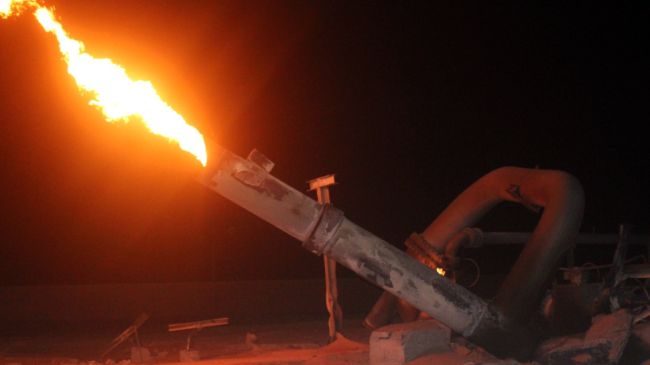
Cairo, April 9: An Egyptian pipeline supplying gas to the Israeli regime and Jordan has once again been hit by a major explosion, which is the fourteenth attack on the energy link since January 2011.
The attack on the gas pipeline, which crosses the Sinai Peninsula, occurred on Monday in the northern Sinai at the entrance of the Mediterranean coastal town of Al-Arish, Reuters reported.
No group or individual has claimed responsibility for the attack, yet.
The gas pipeline’s operations had been suspended following the last bomb attack on February 5. It was brought back into service just last week.
According to an opinion poll conducted by Synovate for Press TV and published last October, an overwhelming majority of Egyptians oppose the terms of the country's gas deal with the Israeli regime.
In the poll, 73 percent of the respondents said they opposed the gas exports to Israel. Only nine percent said they approved of Egypt supplying gas to the regime and 12 percent expressed no opinion.
The issue of supplying gas to the Tel Aviv regime has always been a contentious topic for Egyptians, who view Israel as their number-one enemy and oppose engaging in any form of business with it.
Egypt was forced to agree to the supply of gas to Israel as a major pre-condition for an annual American economic aid package, which was part of the 1979 US-sponsored "peace treaty" between the two sides.
According to a $2.5-billion export deal with Tel Aviv signed in 2005, the Israeli regime receives around 40 percent of its gas supplies from Egypt at a below-market rate.





Comments
Add new comment